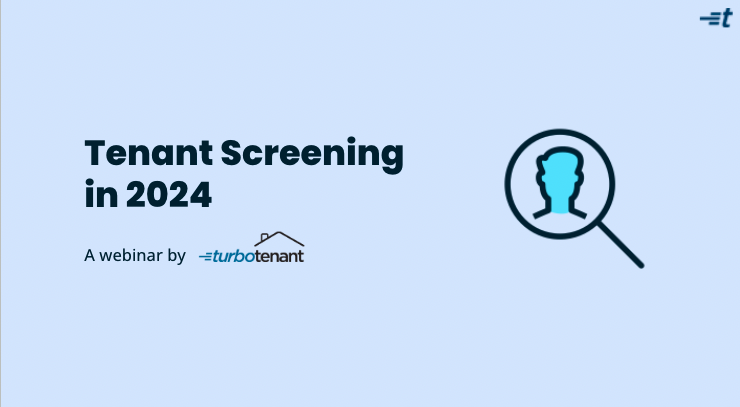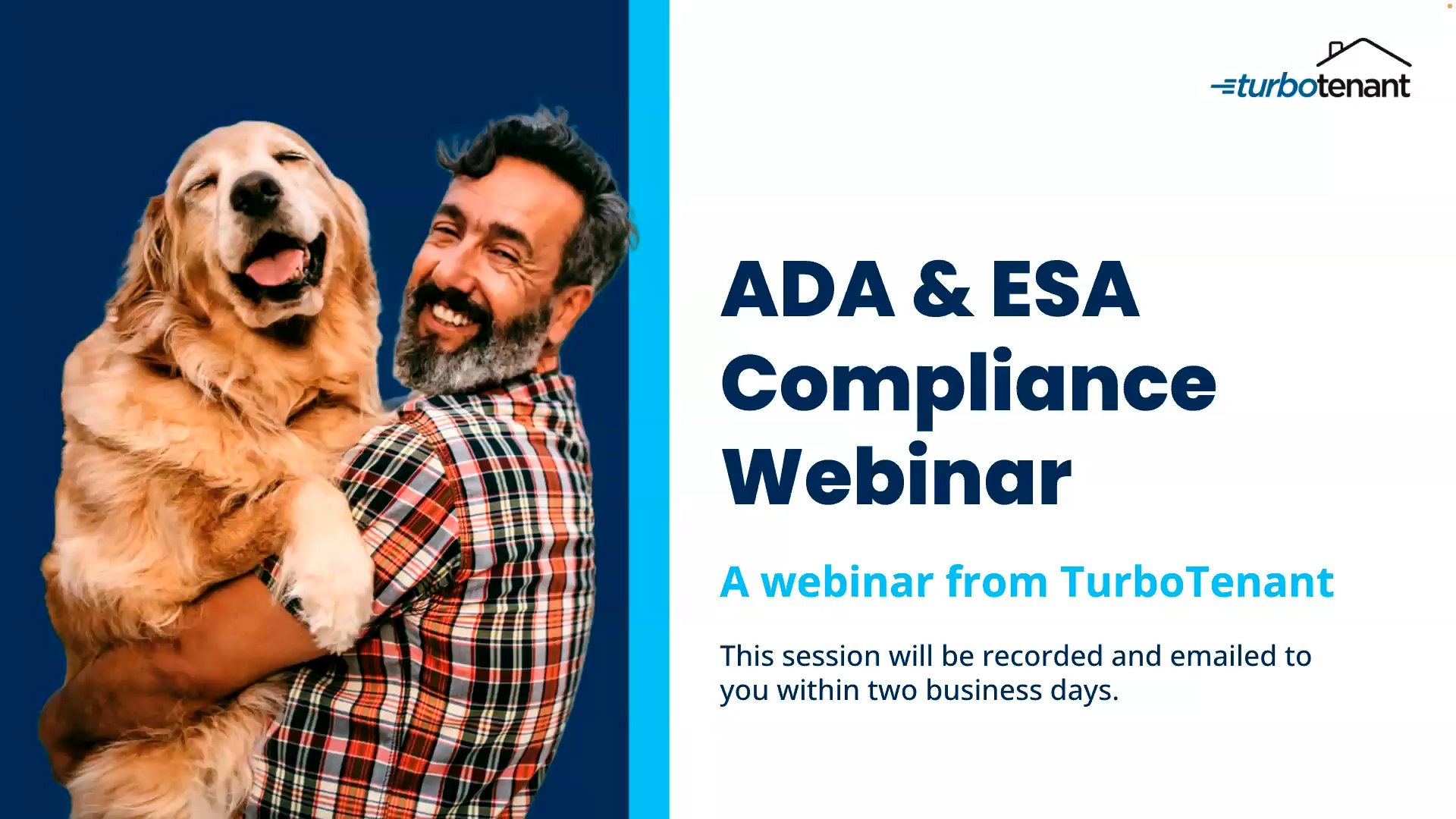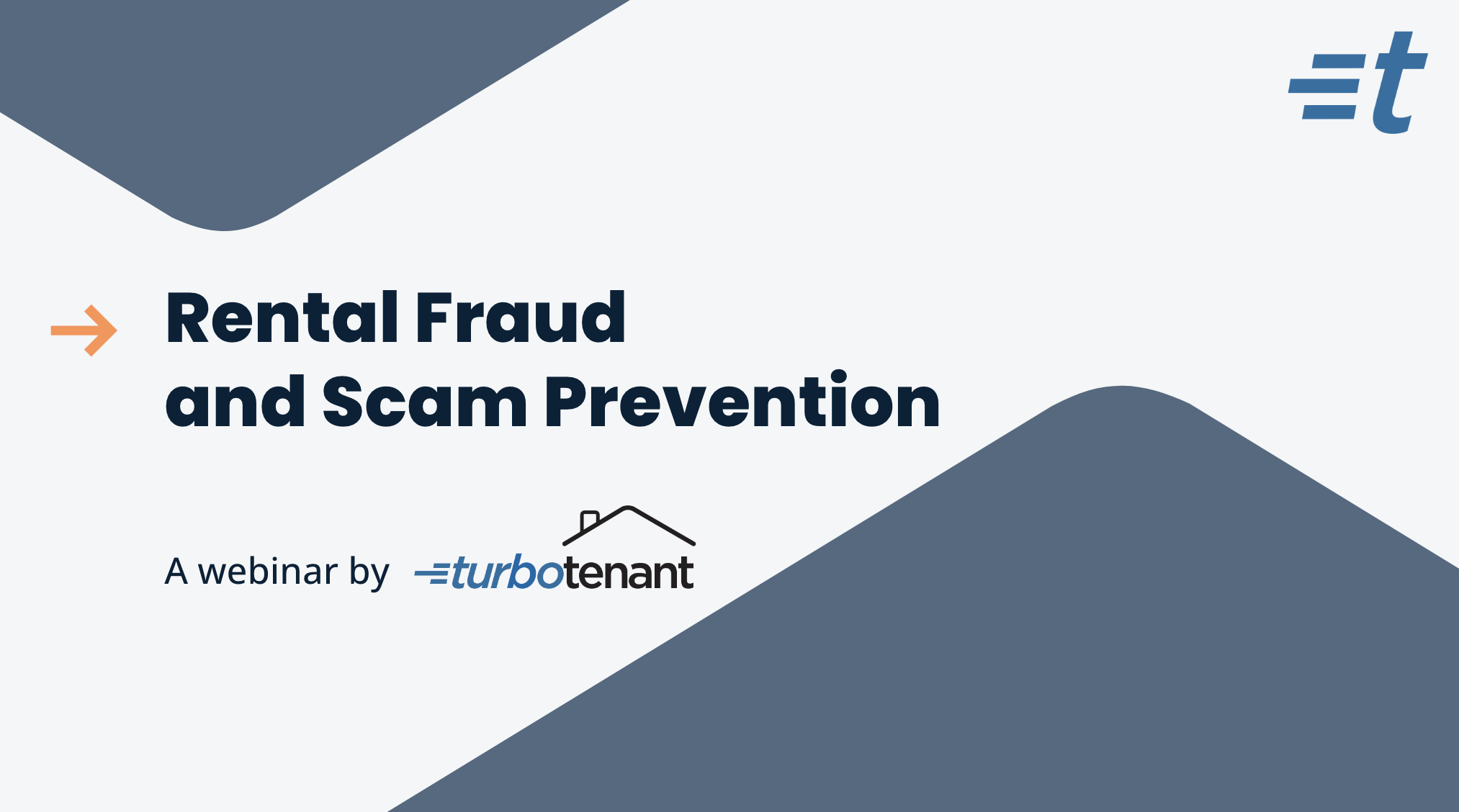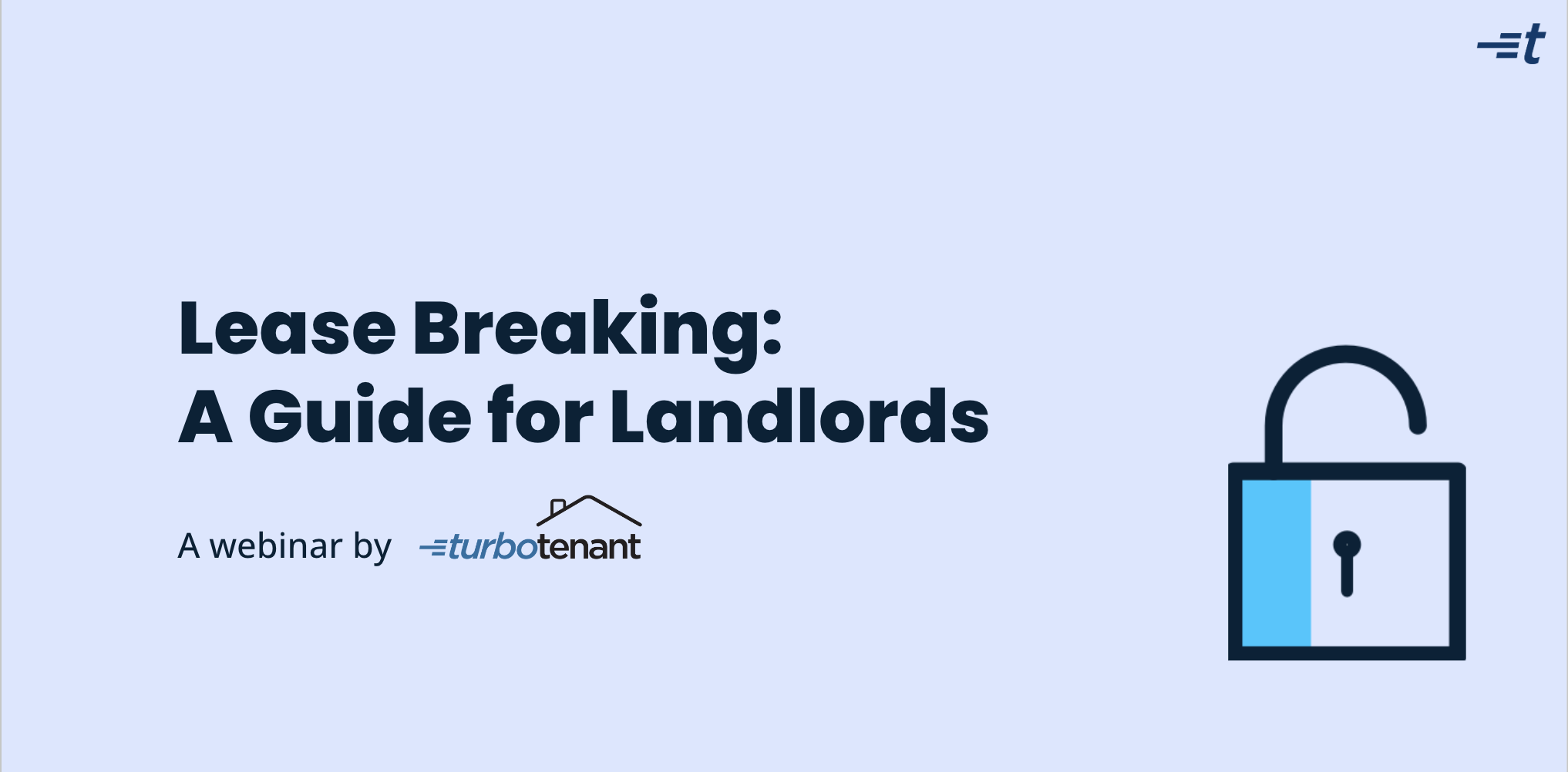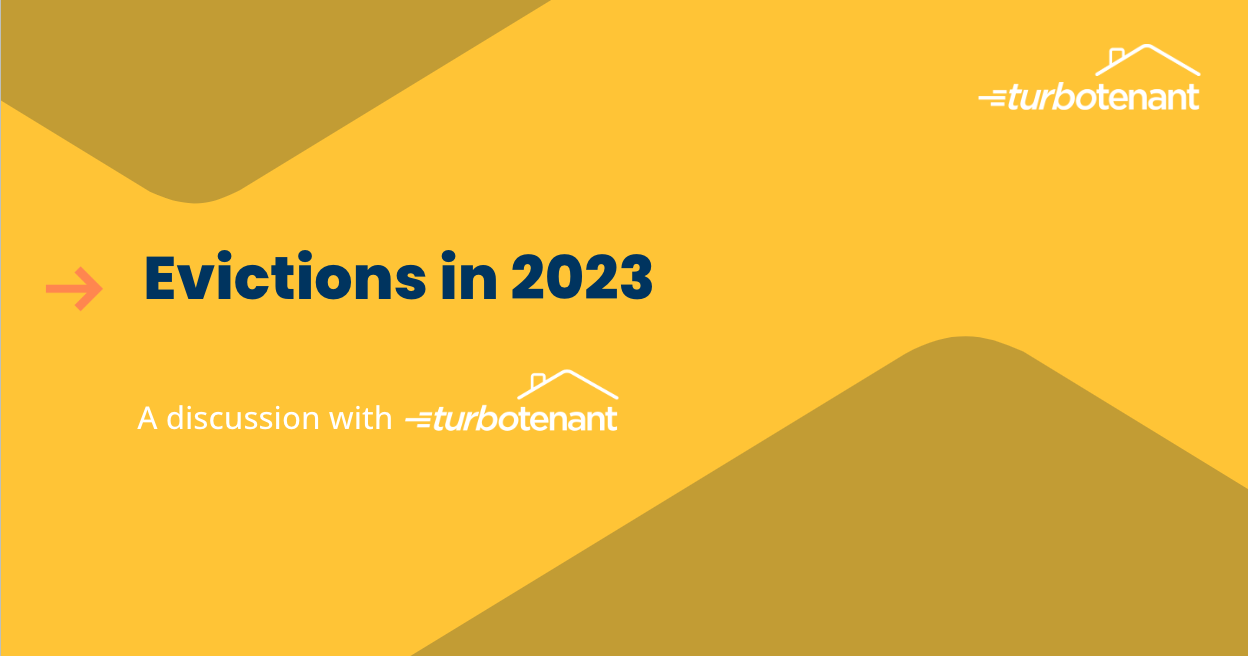Expanding Your Real Estate Portfolio Webinar
In this webinar, we explore diverse strategies for acquiring investment properties. From utilizing real estate professionals and canvassing neighborhoods to participating in courthouse auctions, we cover essential methods. You’ll gain insights into leveraging professional services, engaging with local communities, using digital tools, understanding market dynamics, and creating strategic financial and property selection plans.
Presenters



Key Takeaways
- Expanding Real Estate Knowledge: Stay informed about diverse strategies for property acquisition such as using real estate professionals, canvassing neighborhoods, and participating in courthouse auctions. Familiarize yourself with the benefits and risks associated with each method to enhance your real estate investment strategies.
- Utilizing Professional Services: Leverage the expertise of certified real estate agents who specialize in rental properties to navigate the market effectively. Their training and knowledge can provide invaluable guidance in making strategic investment decisions.
- Community Engagement and Networking: Actively participate in local real estate investment groups and networking events. These platforms offer opportunities to connect with other investors, real estate professionals, and potential partners, enhancing your knowledge and resource base.
- Digital Tools and Resources: Employ digital tools and resources such as MLS sites, TurboTenant, and public records to streamline property management and acquisition processes. These tools can help identify potential investment opportunities and manage existing properties efficiently.
- Understanding Local Market Dynamics: Develop a deep understanding of the local real estate market to identify and act upon investment opportunities swiftly. This includes understanding pricing trends, neighborhood characteristics, and property values.
- Strategic Property Selection: Adopt a strategic approach to property selection by defining your “buy box,” which includes preferred property characteristics and locations. This strategy ensures that your investments align with your long-term financial goals and management capabilities.
- Financial Preparation and Management: Prepare for financial aspects of property acquisition, especially in competitive markets. This may involve securing pre-approval for loans and understanding various financing options to make agile investment decisions.
- Building Relationships with Contractors: Cultivate strong relationships with contractors to ensure reliable property maintenance. Prompt payments and respectful interactions can lead to better service and potentially lower costs over time.
- Legal and Compliance Awareness: Stay informed about legal standards and compliance requirements in property management, including understanding the implications of buying properties through auctions and the responsibilities associated with different types of property sales.
Transcript ▼
Jonathan Forisha:
Awesome. All right. Thank you, everyone, for joining us. I know it may be confusing that the names of Krista and I on this call are both Jonathan Forisha. We are, in fact, not both Jonathan Forisha, but I am! I’m the Director of Education and Community here at TurboTenant. And joining me is Krista Reuther, who is our Senior Content Marketing Writer here at TurboTenant.
Jonathan Forisha:
So thank you again for joining us. We are going to go through three strategies to find your next investment property. If you’re not familiar with TurboTenant, we are an all-in-one software solution for landlords to manage their properties. So this obviously is our bread and butter and we know that all of you are very interested in all of the strategies that you could possibly pick up for finding your next great investment property and a little bit of orientation maybe, if you’re not familiar with the sort of the Zoom webinar format, we are recording this.
Jonathan Forisha:
So we will send the recording afterwards. You can see that at the bottom of the slide right here. It’s always a hot question each time we do a webinar. So yes, we will send the recording, we’ll send it out in an email to everyone who registered for this tomorrow. So look out for that. We’ll send you the recording as well as this presentation.
Jonathan Forisha:
And then we also have a chat feature here which some of you are using. Thank you for doing that. And we also have a Q&A. So our hope is that you guys would drop your questions, your comments, whatever, in the chat, in the Q&A, either one, and we’ll see them. I have them both pulled up. And then at the very end, we’ll leave some time for questions from you.
Jonathan Forisha:
And we have a few internal landlords with us as well. We have Samantha, Sarnen, and Seamus. We only pulled in people with s names to help us out on the Q&A at the end, and they’ll come on in and be able to answer some of your more specific questions about finding investment properties.
Krista Reuther:
Thank you for that intro, Jon. So are you guys ready to find your next investment property? Today, we’re going to discuss setting your goals to finding your buybacks, evaluating neighborhood classes, and then get into three strategies you can use to find your next rental unit. Let’s get started. So it’s important to note that many landlords either inherit their first rental property or cash in on an existing property that they can rent out.
Krista Reuther:
For example, one of our landlords on staff moved out of his primary residence and chose to rent it out instead of selling the property to generate extra income. So ask yourself what are you looking to accomplish by adding another rental property to your portfolio? Are you hoping to replace your W-2 income looking for appreciation in your investment over time, or are you building a rental empire?
Krista Reuther:
Next, you’re going to want to ask yourself what kind of multi-unit landlords you’d like to be, landlords who are eager to flip a property are going to look for different types of real estate and those looking for something more turnkey, as I’m sure you can imagine, understanding why you want to invest in another piece of real estate and the type of landlord you’d like to be will help guide your search for the perfect property to further hone in on your goals, particularly if you’re looking to make some money.
Krista Reuther:
You should check out TurboTenant’s Rental Property Calculator. We will help you estimate the return on your next potential investment in just a few clicks. Before we move on to the next slide, we have a question for you, Jonathan, if you could please pull up the poll. So how big is your investment portfolio currently? Give you a few minutes to trickle in here.
Jonathan Forisha:
Look at the numbers coming in.
Krista Reuther:
Yeah. So we expect to see where people are at because obviously, you know, if you have more experience acquiring rental properties, you might have your own approach. But we still hope to introduce some key elements that you can keep in mind for your search.
Jonathan Forisha:
All right. We’ve got a few people. It’s 67% of you have answered. So if you have not, please do. Please answer our poll.
Krista Reuther:
Absolutely.
Jonathan Forisha:
We do have. Yeah. Frankie in the chat says zero. Should have that as an option.
Krista Reuther:
Yeah, that’s true. This is a great place to start.
Jonathan Forisha:
That’s great.
Krista Reuther:
Okay.
Jonathan Forisha:
Okay, I’m going to end this poll, and all of you should be able to see this right now.
Krista Reuther:
Look at that.
Jonathan Forisha:
How big is your investment portfolio? Looks like most of you are four properties or fewer. We’ve got 14% or 5 to 9 and then 5%. Are you you’re creating that rental empire with ten plus. You’re on your path.
Krista Reuther:
That’s all going to go.
Krista Reuther:
And if you think of anything that you want to share, let’s say you have a tip that you just do not go with that when you’re looking for rental properties. This chat is a community. Share it with your friends. We are all about sharing our knowledge here. Okay, so with all of this information in mind, something that successful investors really keep in mind is their buy box.
Krista Reuther:
What is a buy box? Great question. According to Integra, a buy box is an investor’s description of the types of homes they want to buy. And most of the time when investors created by box, they’re focusing on different attributes of the homes that they want to buy. But what does that mean? Well, your buy box will outline the characteristics of the property that make you want to purchase it.
Krista Reuther:
So landed a company dedicated to helping essential professionals like teachers and first responders buy homes. Notes that your buyback should include the locations you’re interested in, the type of property you’d like to purchase, whether that’s a single family home, a condo, multifamily unit, the size and number of rooms that you’d like the property to have and the price you’re willing to pay.
Krista Reuther:
Now each investor is going to have their own ideas about which features are must haves versus nice to have. So just be sure you prioritize what’s important to you according one of our internal landlords, Seamus actually shared his buy box with me. He only buys properties that need rehabbing so he can purchase them with cash, and then he refinances them to get his money back.
Krista Reuther:
He also aims to add around $40,000 in value for less than $15,000 in repairs in shops for properties that sit within a three block radius from his other units. So as you can see, he’s really honed in on what he’s looking for and has a tight geography that he’s working with. But if you are not tethered by a certain location, you’ll still want to consider what the attributes of the neighborhoods are so you can find a property that meets your needs.
Krista Reuther:
To that end, you can use the neighborhood classification or property classification system to find a location that fits your goals and the type of landlord you’d like to be. Neighborhood classifications are established by compiling community aspects, so think of like the age and condition of the homes, recent community renovations, general landscaping area amenities, the local crime rate jobs, average tenant income, average property price, etc., etc. etc. All of these factors come together to denote a class for the neighborhood or property.
Krista Reuther:
So generally speaking, there are four neighborhood classes and each grouping has its own pros and cons. Class A and B properties typically require less maintenance, have higher income residents, and are considered to be lower risk investments. But they usually have shorter term tenants and lower returns on investment. Class C and D properties usually have more maintenance issues, lower income residents and are higher risk investments, but with more affordable properties and higher returns.
Krista Reuther:
So if you look at this visual with me, this came from Coach Carson. He is a real estate investing coach. So according to his website, he focuses his portfolio on Clemson, North Carolina, which is a college town. So his class allocations here, this neighborhood, are the ones that are closest to the university campus in the downtown district. Class B is a little bit further away, but it still provides easy access to downtown and the university.
Krista Reuther:
And he notes that that’s still close enough to attract tenants and buyers. So a good location, Class C is even further away. But he says that some of the best cash flow properties are available in this location. And while Coach Carson doesn’t label a Class D neighborhood, I would assume it’d be somewhere even further away. Maybe something up here, just based on the location alone.
Krista Reuther:
Bear in mind that neighborhood classes are highly subjective. So at the end of the day, remembering your goals and specific by box characteristics in conjunction with evaluating potential neighborhoods is the way to go, right?
Jonathan Forisha:
And now our three strategies, it’s the title is webinar. So here we go. Strategy one, it seems obvious, but it is a great place to start with. Purchasing any property is to meet with an actual real estate professional. When I say actual, I mean a certified real estate agent. There is training they have to go through. In some states.
Jonathan Forisha:
It’s a lot of training. Texas, for instance, is 180 hours of training that you have to go through before you are before you can even sit for the licensing exam. So real estate professionals, they definitely know what they’re doing. It’s very easy to find a good one. This is where I would say, you know, lean on word of mouth, lean on referrals, your lender, if you already own property, your lender would be a great place to start.
Jonathan Forisha:
Ask them if they know any real estate agents who specialize in rental properties because it is a little bit different. It’s definitely a more unique way of finding and purchasing properties than than if you’re looking for a primary residence, some of the mortgage, the details of the mortgage are a little different if you’re buying a second home or third or fourth or fifth home, as well as you know, you might be looking for a multifamily property.
Jonathan Forisha:
It’s likely you’re not using a multifamily property as your primary residence. Maybe you are. It’s possible, but it’s important when you meet with a real estate professional to share your goals and your buybacks. As we were just talking about, communicate your long term plan. Well, you need the flexibility. Are you going to go with short term rentals? You’re going to go with long term rentals, make sure the zoning is all aligns for that property with what you actually want to do with it.
Jonathan Forisha:
Is there an easier way, if so, where there are rules? And then we also have a pro tip here that, you know, if you’re comfortable surfing the web, which hopefully you are, we recommend tapping into your local MLS sites in conjunction with all the other strategies. That’s where you will actually see, you know, what is for sale, what is available on the market can be a very good way to sort of test the waters and start to make those plans that you have in your head.
Jonathan Forisha:
Compare them to the reality of what the well, what your local market is actually doing and what you can afford.
Krista Reuther:
Absolutely.
Jonathan Forisha:
And then, you know, the other benefit to working with a real estate agent is the ability to tour properties. They can submit an offer for you. They can do all the all the paperwork, which there’s a lot there are there’s a certain type of entrepreneur who thinks working real estate, you don’t have to use a real estate agent.
Jonathan Forisha:
I would advise against that. Unless you are very confident that you have the training and understanding to do everything that you need to do on the real estate side. Plus, having a real estate agent to sort of bounce ideas off of, especially if you find a great one who’s very knowledgeable with the real estate and rental market in your area.
Jonathan Forisha:
It can be so useful to just have that person sort of as a sounding board, if nothing else. And so also networking in your area, I would recommend, you know, meetup.com or just finding real estate investor groups even on Facebook. Turbo Tenant recently had our first investor networking meeting in Fort Collins. So we plan on having many more of those in the future.
Jonathan Forisha:
But those kinds of events are a great way to meet not just other people in the same position as you, but maybe even lenders or real estate agents who are looking for a great partnership that you can both benefit from.
Krista Reuther:
Absolutely.
Krista Reuther:
Just remember to be transparent with your agent about everything you’re looking for to really maximize your success with this strategy. Because if you have some secret hidden dreams that you don’t communicate to them, for example, being able to change your unit into an Airbnb, you’re just going to run into issues. So be transparent, let them in on the plan and they will be able to help you find perfect property.
Krista Reuther:
All right. So strategy two is canvasing target neighborhoods. So this works really well if you have a specific area that you’re looking to purchase property in or if you’ve evaluated some neighborhoods and really honed in on a few that you’re interested in, just bear in mind that we highly recommend having a thick skin and a desire to chat with people if you’re going to pursue this strategy.
Krista Reuther:
So first off, you’re going to want to use all of the resources at your disposal. That means drive through the neighborhood a couple of times. Doing that can help you tailor the marketing materials you’ll need to make to the area specifically, which can help boost your success with this tactic. You can also browse public tax records to find contact information for the owner of a target rental property you want to acquire.
Krista Reuther:
If you have your eyes set on something specifically from there makes a marketing materials. You are going to want to include your contact information, who you are, what you do, how you can help the homeowner or property owner and success stories and testimonials if you have them available as you’re making this up. Specifically, focus on things like a flier and a door hanger.
Krista Reuther:
That’ll be the most successful method to carry your message. All right. And we actually have another poll here, which is very exciting.
Jonathan Forisha:
All right. I just launched it.
Krista Reuther:
There we go. Have you ever canvased an area specifically looking for rental properties to purchase? Oh.
Jonathan Forisha:
Yeah. Canvasing is always controversial because I think some people totally fine talking to complete strangers, even knocking on their door and talking to complete strangers. Others think it’s kind of a no to sales, to salesy maybe. But you know, you can find some great properties. I had.
Krista Reuther:
It’s true. It’s true. And if you’re an extrovert, I mean, really go out there, talk to the people, introverts, I love you. This might not be the strategy for you. It might give you more anxiety than success.
Jonathan Forisha:
And something else. We’ve got it up here on the slide, but having a great door hanger, I think is is a huge part of the success of CANVASING because you got to think most people are not going to answer the door even even if they are home, they may pretend that they’re being able to leave something behind as a kind of calling card that has your contact info and, and the reason that you knocked on their door in the first place, super useful.
Krista Reuther:
Absolutely.
Jonathan Forisha:
All right. I’m going to end this poll and let me share the results.
Krista Reuther:
Yes.
Jonathan Forisha:
38% of you have canvased. Very interesting. Okay. If anyone has any tips for canvasing, please do drop it in the chat. I’m going to be honest. 38% was a little higher than I thought.
Krista Reuther:
Yeah, me too. Good on you for picking this one up. If you also have any fun anecdotes from your times canvasing through neighborhoods for investment properties, feel free to share those as well. Again, we are eager to learn from each other in this community, so any tips you can give folks are going to be well appreciated. Absolutely right.
Krista Reuther:
So before you slap on some sunscreen and get to knocking, make sure you write a short script that you can follow. When someone inevitably answers their door, you’ll want it to reflect your marketing material just to carry your messaging through. Give it a couple of practice rounds. If you have a spouse who is patient or even just a dog who will sit in the room with you, you can practice it with them to kind of get into a natural flow, but definitely do some preparation ahead of time and it will help you prevent any freezing at the door, which is not ideal when you’re trying to connect with someone.
Jonathan Forisha:
It’s not a great first impression.
Krista Reuther:
No. All right. So your marketing materials are looking great. You’ve practiced your pitch. It’s time to start knocking. So set yourself up for success by being respectful and thoughtful. When it comes to your timing, no one likes to be interrupted during dinner, so be thoughtful about when you go out and what your what the property owners might be doing at that time.
Krista Reuther:
So for example, if your schedule allows it, consider canvasing for like 10 a.m. to 5 p.m. on a weekend because that window of time is not likely to intrude on someone’s life in a way that will get you yelled off the property probably shouldn’t be proud of it. My dad used to be the one who would. He would yell at people if they came to the door during dinner and it just doesn’t leave a good impression for either party.
Krista Reuther:
So be thoughtful, be respectful and plan out your windows based on your schedule and what the other people might be doing in the neighborhood. Of course, if no one’s home, leave your flier or door hanger on the property. But if you stumble across something either in your drive when you’re canvasing the first time without knocking on any doors or when you’re actually walking around and introducing yourself to the community.
Krista Reuther:
If you find something that has a for sale sign, don’t feel inclined to leave your marketing materials or otherwise try and go around the instructions as they’re provided. Follow their instructions if they give you a phone number to call or if they leave with the real estate agents. Contact information reach out through those channels to achieve the most successful outcome.
Krista Reuther:
Before we move on, I’ll say it again. Canvasing requires a thick skin. You’re likely to be told no more often than not. But that doesn’t mean you should give up or not even try the strategy. It’s really a numbers game, so don’t be afraid to knock on as many doors as it takes to find your next property.
Jonathan Forisha:
And in the chat, Seamus added, Here we put our company, our company name and logo and the properties we own so that after the remodel, when they’re sticking out in the neighborhood, they’re also creating some brand recognition. It makes it so that their name is familiar when canvasing. So that is a great tip. Brand recognition is huge. So if you can get your logo and just slap it around as much as possible, especially if you are remodeling the property and it stands out in a good way when you’re done remodeling, that’s awesome that that just sort of builds up your credibility in that area.
Jonathan Forisha:
And we did have Kim in the Q&A ask what’s the success rate for canvasing? That’s really hard to say. I think it varies wildly from person to person. You know, some people are just naturally great salesmen and could sell you your own car again. But but not everyone has that gift. So I think some people it’s probably very successful, but I’m actually going to turn that question around on our attendees here.
Jonathan Forisha:
38% of you have Dennis. So dropping the check, is it successful for you? Do you recommend it as a strategy for finding investment properties?
Krista Reuther:
Fantastic. All right. While we are chatting it up, let’s talk about our third strategy. Our third strategy is one that a lot of landlords looking to expand their property management portfolio may not have much experience with, which is using courthouse auctions to buy properties, often at more cost effective rates. So first off, how do you find these things?
Krista Reuther:
Well, Google will be your best friend. So just Google your city. And the phrase real estate auction, it should pull up a government website with the list of properties that are either currently or about to be auctioned off, along with details regarding the next auction date. Typically, it also lists the, you know, specifically the address. So you can use that information to look up the different properties and see on Zillow, Redfin, etc., what they’re looking like.
Krista Reuther:
We’ll touch more on this later. But you most likely will not have the chance to go inside or really tour any of these properties before auction date. So doing your homework ahead of time will really set you up for success. Now with that in mind, there are three types of auctions. There’s an absolute auction in which the highest bidder wins.
Krista Reuther:
And typically these attract the most bidders because there is no minimum bid and all sales are final. Then there’s a minimum bid auction, which, as the name suggests, means there’s a minimum price that will be accepted for specific properties and it’s usually announced before bidding begins on a property. The minimum bid itself, the amount is usually the balance owed on the mortgage.
Krista Reuther:
In the case of foreclosure or taxes out if there is a tax, another property. And the third type of auction is a reserve auction. So these bids are more like offers that the seller can accept or reject. The seller usually has their own minimum bid in mind, but they don’t tell anyone with the hopes of getting as much money as possible for the property.
Krista Reuther:
All right. Now a little bit more knowledge to drop upon you. There are two types of bidding systems. There are open bids in which bidders know the amount of any other bid that has been made on the property. You might imagine that this is preferred by bidders because they can make bids according to what other people’s are done.
Krista Reuther:
And then there are blind bids in blind bidding systems. Bidders don’t know what anyone else is offering, which is why this is usually preferred by sellers once again to try to maximize their bottom line. When it comes to financing a courthouse auction purchase, it’s important to note that most auctions require cash or cashier’s checks as payment. It’s possible that they might allow some financing options, like delayed financing or hard cash loans.
Krista Reuther:
But be sure to check your local rules before heading into an auction so you have whatever you need on hand. Otherwise you could lose out on the bid. Speaking of financing options, I know how to talk. Delayed financing allows you to pay for the property upfront, then immediately refinance it to take out equity. Just keep in mind that the strategy is heavily contingent on the condition of the home, and it might be impossible if you’re purchasing a true fixer upper.
Krista Reuther:
Alternatively, you could pursue a hard cash loan, which can be great for investors who aren’t looking to live in the property. Flippers tend to get the most mileage out of this type of loan because they offer high interest rates paired with a short term, short repayment term.
Krista Reuther:
Okay. You thought we were done. We’re not. There’s still more that you need to know about courthouse auctions. They’re a little bit more complicated than the other two strategies we’ve listed here today. So if you decide to pursue courthouse auctions to purchase real estate, just bear in mind that properties are sold as is. You likely will not be able to see the interior or toward the property at all before purchasing.
Krista Reuther:
Do it sneakily. You can drive by, but don’t be a creep. Do not look in the windows. You really need to just take it at face value. And that’s why this type of strategy is a little bit riskier. And it’s for more experienced investors, in my opinion. Also, as a buyer, you will be responsible for doing your due diligence to ensure that the title is held complete, free and clear.
Krista Reuther:
If you don’t, then you’ll have to pay off any leads on the title once you acquire it. Last thing to note is that the property could revert to the previous owners if they are able to bring their mortgage current. Create a forbearance plan or negotiate a short sale. So an auction, a property auction means that the property is really only yours once you have the title.
Krista Reuther:
There are a lot of steps that the current owner can try to take to save the property. So again, a little bit riskier, but it can be well worth it because you can get properties at a more cost effective rate than you would just out in the market.
Jonathan Forisha:
Yeah, our three strategies are definitely starting with most conventional, maybe less least risky, and then becoming more risky with the option to and option three being the riskiest. But but if you know what you’re doing, I mean, there’s you can definitely find, as Krista said some really great maybe on conventional properties. If you go to an auction.
Krista Reuther:
Absolutely. So all in all, we encourage you to take calculated risks. After all, the best thing in life require taking a bit of a risk, including expanding your real estate portfolio. So whether you decide to find your next property by working with a real estate agent, well versed rental properties, canvasing local neighborhoods or throwing down in an auction.
Krista Reuther:
Just remember to keep your goals at the forefront. Let your buybacks guide your property, search and we’re confident you’ll find a unit that you and your future tenants will love.
Jonathan Forisha:
Awesome. All right. Well, with that, we’re going to open it up for questions. We have a few in our chat here. Uh, I know that. Let’s see. Where was that? There was one of them that looks like Seamus or he answered, which is who decides the the classes, the class, ABC and D that we were talking about and it was put in the Q&A.
Jonathan Forisha:
But I do want to stress that it’s actually a strategy taken from commercial real estate, being able to say it’s a class A, B or C, there is no set standard for it. So it is very subjective, which means my class AA may not be Krista’s class. AA it really depends on our particular buy boxes, which is why we really recommend establishing that before you do anything else.
Jonathan Forisha:
Understanding what type of property do you want and what location are you looking at? Because that’s also going to determine what kind of renters are you going to get. You know, if you’re near a college, you’re probably going to have college students as your as your renters. So evaluating all of that is going to be really helpful for figuring out how close you want to be to that college, for instance.
Krista Reuther:
Absolutely. And just to build off that as well, really honing in on your goals like like in the example with coach Clemson, coach class coach Carson’s Clemson properties, he wanted to be able to have people as close to the campus and downtown as possible, but that might not be the strategy you’re after. Maybe you really prioritize having a property near a specific lake or you know that you can get a great high rise at a certain price and you want people to be able to have good parking, just whatever is specific to you and your goals.
Krista Reuther:
Keep that in mind and determine your neighborhood classes accordingly.
Jonathan Forisha:
Absolutely. Okay. So as I said at the top, we do have a few internal landlords that are on the call. So Samantha, Sandra, Seamus, if you guys wouldn’t mind coming, turning your video on, you should pop up right here. And just to introduce you guys so Seamus is TurboTenant’s founder. He has quite a few properties in Montana has been a landlord for a long time.
Jonathan Forisha:
Seamus is our current CEO and has some properties in, I believe, upstate New York and we had talked about his how he buys properties, which we’ll get into a little bit more. And then Samantha is on our team and was formerly a property manager for a very large community with like 600 units. So looks like I need to allow them to turn on their videos.
Jonathan Forisha:
Let’s see.
Seamus:
Here.
Krista Reuther:
Their face. As they pop on, they’ve agreed to answer questions relating to how they found their first properties, including online tools that they love like local MLS and index sites and public records. Sartin is an expert with those tools, so any questions you have for him about that or anything? Obviously be good to go if you’re curious about their buy boxes.
Krista Reuther:
Any property management tips for people with multiple pieces of real estate or how turbo tenant can make property management easier? The before we are all ears.
Jonathan Forisha:
Hello Samantha.
Krista Reuther:
Hello.
Jonathan Forisha:
All right. And there are Sarnen and Seamus. All right, guys, thanks for joining. Sarnen, let’s start with you. We kind of mentioned Seamus by box criteria, but starting in, I know you have identified your own. Could you go through how you did that?
Sarnen Steinbarth:
Yeah, absolutely. I’ve purchased about 50 rental properties is and I’m to the point now where some of my main criteria first off, it’s a little cliche, but like location, location, location, like I want a quality and I look at macro and micro like good town, good neighborhood and then down to like a good, good st. I mean one of my dad’s advice was like buy the worst property on the best street and it’s going to be hard for that property value to go down.
Sarnen Steinbarth:
If you put some sweat equity into it, it’s going to be a very safe investment to go up.
Sarnen Steinbarth:
You know, I’m to the point now where I try to get all my properties in about a one mile radius. That’s not so much for the micro location as much as it’s for like management and ease and efficiency. So location number one, financials, number two, you know, the rental property calculator. Looking at that, looking at the price per square foot in college town price per bedroom is really important because most of your rents are going to be based off of, you know, on a per person or per bedroom basis.
Sarnen Steinbarth:
And then just knowing costs and having a good feel, is this a good deal in the market that I’m in? So having a good financials, so location, financials, functional layout. I’ve been in some properties that, you know, you.
Sarnen Steinbarth:
Have like a six and a half foot ceiling and a bedroom with pipes running through it. And you ask yourself like, is this a good layout for the property? Maybe there’s a reason it’s that. And has it sold. So I always like the functional layout structural integrity. We bought one property that was built in 1892 and we had to completely re jack up the foundation and put a new roof on it and do some really expensive stuff that really didn’t help with rents.
Sarnen Steinbarth:
You know, I joke that there’s there’s a reason like roof is an an amenity on Zillow because it’s just like assumed you know and so putting money into that doesn’t really help principles or help rents ability. So I’d much prefer having good structural integrity and put the money into like things that are into like, like new carpet, new paint, new appliances, things like that.
Sarnen Steinbarth:
These are the types of fix ups that I like.
Sarnen Steinbarth:
To do. And then kind of my, my final one is what I call like a livability test. And, and I ask myself, would I have wanted to live in this property at some point in my life? It doesn’t have to be today. But like when I was in college, when I was just starting out as a family, when I was single, whenever it was, is this a property that I would like to live in?
Sarnen Steinbarth:
And if that’s a no, it kind of takes that property off the list. If it’s if it’s a yes, that’s something I’m much more interested in. So by box, location, financials, functional layout, good structural integrity. And I would have liked to live in this.
Jonathan Forisha:
Yeah, those are some great tips. I especially like that last one putting yourself and your prospective tenants choose of you know if this place is really just not pleasant to live in, why should I expect anyone to pay me to do so? That’s definitely a good step.
Sarnen Steinbarth:
And one of thing on that, I have actually lived in most of them and there’s no better way to like know and figure out what’s needed and and and to be able to market or talk about a property to living in it yourself, whether it’s for three months or a year, you know, that’s something to consider, particularly if you don’t have a real set residence and you’re willing to move into a rental.
Sarnen Steinbarth:
I think you can really get to understand it very well. So over half the rental properties of actually lived in wow. It also it also it just to add to that, it also creates like natural canvasing. So the canvasing that we do is so I on the rental properties with some siblings and one of my brothers actually lives in the neighborhood or down near the neighborhood.
Sarnen Steinbarth:
Right. And so and lived lived in one of the properties for a long time as well. And so just through meeting the neighbors, it actually led to a lot of the other purchases we’ve done in that area, which is why such a tight location that we’re we’re able to kind of continuously buy. And despite having such a strict kind of three block radius.
Jonathan Forisha:
Yeah. That’s awesome. And when you dropped in the chat earlier about giving you that sort of brand recognition, right, with your with your rental properties, people start to understand, oh yeah. Okay. Is that that group buying another property?
Sarnen Steinbarth:
Exactly.
Jonathan Forisha:
So, Samantha, you were previously property manager for they have that right, 600 properties, is that right? 600 units.
Samantha Yadav:
Yeah. So I worked for a large multifamily management company and my average portfolio was about 450 units. But at its max, I capped out at 1150 oh at one time.
Jonathan Forisha:
Okay. Do you have any tips for people who are anyone on the call who is wanting to have that many properties eventually say they’re aiming for 1150. What should they know?
Samantha Yadav:
Yeah. From the property manager standpoint, I would say a big key to that is staying organized and communicating. So we do have some tools in Turbo Tenant that help you with that from storing your documents, whether it’s your your insurance contract so that you know that your policy is coming up on expiration or communicating with your tenants to be a messaging.
Samantha Yadav:
We also provide a read receipt there, which is really nice. So your tenants can’t say they didn’t get it. And then we also have an activity log. So if you talk to your tenants about let’s say they wanted to pay their rent a few days late and you made a verbal agreement with them, you can record that information on the activity log so that you can reference it later, but it doesn’t necessarily share it with the tenant.
Samantha Yadav:
So that also works really well for providing violations or neighborly complaints that you may have, which certainly helps if you have multiple properties or units next to each other.
Jonathan Forisha:
Yeah, that’s awesome. It’s a great that’s a great tool. I see Cathy in the chat here says she always advertises, interprets in it and loves the applicants that she gets. Thanks Cathy. That’s great to hear. We also had Kyle in the chat. Ask any experience or advice for buying a foreclosed property with the intent to transform it into a rental with some sweat equity?
Jonathan Forisha:
Any of the three of you have any advice there?
Sarnen Steinbarth:
I don’t I personally haven’t purchased foreclosed property. I know there’s some some things that are a bit different. Oftentimes, the inspection, you may have limited amounts of the ability to inspect theirs or have a very short inspection period. I know there’s some interesting tools related to that, like different light inspection tools. Even some people have done some drone inspections where they can look at some stuff.
Sarnen Steinbarth:
So that might be a test. But it’s not something I’ve personally done, but I would be cautious on the inspection aspect of it.
Seamus:
Yeah, we’ve managed through canvasing to find properties right before they basically go into foreclosure. Like the individual knows that the house is going to be foreclosed on because they can’t make payments and that’s where and then we have different tactics like, well, we have an inspection and do it ourselves. I’m fortunate enough to come from a family of residential contractors, and so we’ll actually go through and just do a self inspection and wave it and then kind of be able to get it before before that, you know, before they’re in really deep water, which is usually great for that, good to the owner.
Seamus:
So we haven’t purchased anything directly out of foreclosure either because of that.
Jonathan Forisha:
Yeah. What you said, though, does bring up a good point of using the resources available to you. You have a family of contractors who know how to do that. Some of the DIY work themselves. So use it, you know, if you have family members or again using your lender or real estate agent that you already have a connection with.
Jonathan Forisha:
It’s a great place to start when you’re building this stuff out. And we do have a question. I’m sorry, I to go ahead.
Krista Reuther:
But just a quick thought, I’d say doing your research. So, for example, if you’re not blessed to have a family of contractor who can help you out becoming familiar with common property damage, like specific damage that you might anticipate because of your surroundings. So for example, if you’re somewhere where it’s really wet outside knowing how to spot mold, if you’re somewhere that gets a lot of landslides, really sorry for you.
Krista Reuther:
And also check out the foundation. Just knowing your surroundings and being able to check for them accordingly might help you in your search for that foreclosure property.
Sarnen Steinbarth:
But to build on that, because that’s just one thing we typically do as well in whatever city or county that property is located. We’ll go and we’ll look at any building permits that have maybe pulled on it to understand things like when was the when was their roof replaced? Right. Is it relatively new? And and any other construction that has maybe happened for you can typically look that up.
Sarnen Steinbarth:
It’s publicly available information that you can look up. And it’s another way, even if you are getting an inspection or are talking to that existing owner to have a little bit more of a intelligent conversation with them and also kind of sanity check what they say. Right. If they say it’s a brand new roof and there’s no permit for a new roof in the last 15 years, then you either have a roof that wasn’t permitted, which is some red flags, or maybe they’re they’re not being completely transparent with some of the repairs.
Sarnen Steinbarth:
So that’s another thing that you can pretty easily do as an individual without any additional help. Yeah.
Samantha Yadav:
We also offer an internal and external inspection checklist in our forms pack and a property make ready checklist to help you get the property ready for your tenant.
Jonathan Forisha:
Absolutely. Yeah. Checklists, they sound simple, and it sounds like something that’s maybe too elementary for you as you’re building out your rental business. But that’s not true. Checklists are super, super important, especially when doing something like buying a property. You know, you may think every property is the same, but as we’ve been talking about, they absolutely are not.
Jonathan Forisha:
There are so many quirks to different rental properties and just property in general, so having a checklist can really help you cover of your bases. And we do have a question in the Q&A. Somebody asked, do you guys have resources to find homes that have not hit the market? I live in a hot market. Enough interview coming soon, homes, but in California coming soon properties can be listed ten days before going active.
Jonathan Forisha:
I often see homes where I think, wow, that would be great property. Then see later it was sold and never hit the market. So overall, curious if there is some secret resource for viewing listings coming soon, but not on the market or MLS like a private listing.
Jonathan Forisha:
Any thoughts?
Sarnen Steinbarth:
I know the laws vary state to state on like the legality of a real estate salesperson to have what state to call like pocket listings. But certainly knowing and talking with professional real estate agents in the area, they may be aware of places they may be talking to clients that are considering and they may be able to help with that.
Seamus:
You know, it’s then certainly more effort needed, but it’s kind of like canvasing or canvasing by mail. If there’s 20, 30 properties you’re really interested in to mail postcard to the tax address on file, which is oftentimes not the rental property address. It’s it’s where property tax records get sent in. So you could try to uncover some of those.
Sarnen Steinbarth:
It’s a little bit of taking a shot in the dark, though, if you know, but a few ways there, as Diane saying, networking, get going to the landlord, meet ups and things like that. Oftentimes, you know, I’ve been involved in a handful of different landlord groups and people will talk about, oh, maybe I’m thinking of selling, maybe I’m thinking of going larger on something.
Sarnen Steinbarth:
Maybe I want to do a 1031 exchange just having those conversations and being in the room when that’s happening, because that’s probably a few months before they would actually sell it and you would actually see it on in the last.
Jonathan Forisha:
Yeah, great tips. It looks like Bill in the chat said getting good contractors is a challenge for us. Some seem very uninterested unless it’s months of work and a forklift upgrade. Any tips on getting good contractors?
Sarnen Steinbarth:
I think it’s tough now. One thing I always say is good contractors tend to know they’re good contractors. And so, you know, like the good plumbers don’t know and recommend the bad electricians. So if you’re looking for a good electrician and you have a good plumber, ask the plumber who they recommend and who might be taking on work.
Sarnen Steinbarth:
And so I actually like to get contractors through other contractors of kind of similar backgrounds. Yeah. I would also say it’s worth when you’re talking to a contractor, also just letting them know the situation you’re in in terms of like you’re buying this as an investment investment property, which means it’s going to be vacant while they do the work.
Sarnen Steinbarth:
That’s actually very attractive to a lot of contractors. And you can let them know that your goal is to buy more of these down the road. Right. Which means more continuous work and doing that work for the same individual over time, which a lot of a lot of contractors prefer, that’s not going to necessarily make up for the fact that a lot of people have been doing home remodeling projects over the last two years.
Seamus:
Right. New additions and large projects, really large price tags. But those are the things that can be can be really appetizing. And then I know from working as a resident contractor for my father’s company for six years through through college summers, is that just when you do have a contractor treating them really well, you know, bringing out lemonade or coke or some cookies and little things like that.
Seamus:
In another day they actually go a really long ways and they took jobs that honestly stock like roofing or insulation or other things like that. And you immediately about elevated the are your customers kind of opinion of them in their mind. And so I think you do out a good contractor, do whatever you need to do to keep them happy.
Seamus:
Even things like my father’s customers would send Christmas cards, right, with gift certificates and stuff like that. So it’s you get a great one. Hold on to them. I would say really tight and and bribe them friendly bribes along the way. Yeah. I think plus one on that and along the same lines of paying them quickly. I mean so many contractors are used to having to like, you know, badger their own clients to get paid.
Jonathan Forisha:
So paying them quickly.
Seamus:
I mean, we had a plumber, we managed 300 units, we had a plumber that if you just called him, they’d say, Oh, we’re like three weeks out. But the amount of work that we gave and knowing that we paid within days of getting invoice, if we’d call, he’d be like, All right, we made a day, you know? And so just getting that good rapport going, yeah.
Jonathan Forisha:
Be nice to your contractor. That seems to be the overall cover and a good one.
Jonathan Forisha:
Yeah, that’s good advice from Bill. Says he’s done tacos and bottles of water. Always good, especially in the summer, especially for, you know, if your contractors digging into your house or in your attic or something. Yeah. They think about how horrible that it that can be. We had Patty in the chat so they started purchasing with the last last few months and have three condos now in their area.
Jonathan Forisha:
It seems that they have to put in an offer a.s.a.p or it’s sold, so no time for reviewing county records, etc. and when they’re getting a loan they lose out to a cash fire. Even when a loan even with a loan pre-approval letter. Is this common nationwide or just in hot real estate areas? And they’re in the D.C. area for context Patty, the housing market has been insane.
Jonathan Forisha:
The last two years have been totally nuts. I’m sure everybody on this call already knows that. But just it you know, it’s worth repeating. Things are definitely starting to cool off. I see. Diana said that their market in Colorado has become more balanced. We are also in Colorado and that’s true. I think things are kind of plateauing. Definitely helped along by the recent mortgage, their interest rate hike that happened last week.
Jonathan Forisha:
There’s definitely a low right now in mortgage applications, but it’s still crazy. And it’s still crazy because the right the right kinds of houses were not being built for a while. So homebuilders were making the luxury homes, not necessarily the starter homes. And millennials, which are now, by the way, the largest generation in America, had nowhere to move into.
Jonathan Forisha:
They had no houses to buy. Basically, they were completely priced out. So I think it’s going to be a while before we start to see prices start to come down. I think things have kind of plateaued. Hopefully they won’t keep going up in price out investors like all of the fine people on this call. But but yeah, it’s it’s a it’s definitely an issue nationwide.
Jonathan Forisha:
It’s not just D.C. They would have anything to add on to that.
Krista Reuther:
And I think you summed it up nicely. It’s a very hot market and we are anticipating a cooldown. Yeah, I’m not surprised, unfortunately, to hear how quickly properties are moving in D.C., especially because there are some very strict rules over there about how things have to work.
Sarnen Steinbarth:
So at least from from my experience where we are purchasing that, the hotness of the market is really no different. Whether you’re looking at a like a townhouse or a single family or, you know, a multi-unit, it’s kind of like just the person that you’re competing with in that purchase differs, right? You’re going to go from competing with an individual that wants to use it as their primary residence to another investor.
Sarnen Steinbarth:
And if you’re trying to finance that, they may have cash. And that’s something that you you run into a lot. So I don’t know that there’s like an easy area to go to try to make your purchases today in most markets. So yeah.
Jonathan Forisha:
Yeah, I know the question came up before to why does Seamus only buy in a small geographical area? And instead he does the same. And I don’t speak for you guys, but I think that’s a big part of it, right, is that you don’t have to learn, learn a totally new area you’re in, know the area. It’s just a matter of actually getting the property.
Sarnen Steinbarth:
Yeah, I think being comfortable, you know, one thing it’s it’s less about finding the property, but maybe more about lending. It is the good properties and we’ll go fast. And so if you need to learn, if it’s a good deal, it’s probably already going to be gone by the time you figure it out. So being ready to move quickly, I think is very important because you cannot move slowly and get a great deal.
Sarnen Steinbarth:
Right now, I don’t believe I have a really good point that that Cathy shared just in terms of easier to show your properties. The other thing we do is we’ve got one of our properties with a garage that we don’t rent out and we actually keep supplies for managing the other the other properties you have nearby in that garage, which is really awesome so that anyone can swing by, you know, you don’t need a truck or anything like that, can kind of swing by and grab some of that.
Seamus:
The simple things that you may need to snake a drain or or something like that, which is another reason proximity is then really beneficial to us. But you got to be patient. We we can only grow as fast as the area allows us to grow and properties come up for sale. And so because we are patient and in it for the long haul, that that hasn’t been a problem.
Jonathan Forisha:
Awesome. Yeah. Okay. Well, I don’t see any more questions in the Q&A or in the chat. If you have any, please drop them in there. But we are sort of nearing the end of our hour together, so I’m going to open it to Seamus, Sarnen, and Samantha, do you have any just kind of general other tips or other lessons you’ve learned investing in real estate that we haven’t that we haven’t covered already?
Seamus:
It’s a very little one, but it goes to this top bullet point we’re looking on in the last ADX, at least here in northern Colorado. If if I’m trying to look at like what is the most recent, you can sort by the MLS number. And so I always searched by MLS number highest to lowest and at least our local in the last little update like every 20 to 30 minutes.
Seamus:
And so I can just refresh a couple of times and literally see what is it the market in the last 20 to 30 minutes. So I’ve used that before and some of them might put in an offer within 60 minutes of hitting the market publicly. So that’s an interesting little tip and I don’t know how many devices are like that, but I think many allow that functionality to.
Sarnen Steinbarth:
Sort by MLS number, which is usually sequential.
Jonathan Forisha:
That’s a great tip.
Sarnen Steinbarth:
This is an I guess immediately for acquiring new properties. But once you get a property in an area, I would just say in the same way I was talking, you know, little, little bribes and nice things for your contractors do the same thing for neighbors that they can be your number one kind of eye on the street. If they’re if they’re you’re your friend, right?
Sarnen Steinbarth:
If you get them on your side, they’re also the ones that will talk to other neighbors and let you know that, hey, you know, Joan down the street is is thinking of selling, right. And little things like that. And so I would just say, once you get a property, if you’re not living there, try to insert yourself a little bit enough into that community so that you you win some favor with with those individuals living near your property and maybe get a heads up when something’s going to go on the market.
Krista Reuther:
It’s a great tip.
Jonathan Forisha:
All right. Well, we did have Scott and Jennifer Blake in the Q&A. So they’re interested in the 1031 webinar. If we get around to meeting one, well, we just might do that. So that is a great segueway into saying that when we end this webinar, you will all get a survey and it will ask you just a few questions.
Jonathan Forisha:
One of them that we’re most interested in is Which topic would you like to hear about next? The slides be available. Yes, they will vary. We will send an email tomorrow. You will have this video in the slides. And with that from our guests, any any closing thoughts? Nope. We’ve said it all. Okay, perfect. Well, thank you, everyone, for joining.
Jonathan Forisha:
Thank you all of our internal landlords for joining and sharing some of your knowledge and everyone else. Look out for that follow-up email and please do fill out the survey.
Krista Reuther:
And thank you so much.
Top questions asked by the audience:
Who decides the neighborhood classes (Class A, B, C, D)?
Neighborhood classes are subjective and taken from commercial real estate. There is no set standard, so it varies based on individual criteria and goals.
Any experience or advice for buying a foreclosed property with the intent to transform it into a rental with some sweat equity?
Be cautious about inspections, as they might be limited or quick. Utilize available tools like light inspection tools or drones. Understanding the inspection aspect is crucial.
Do you have resources to find homes that have not hit the market?
Networking with real estate agents, attending landlord meetups, and canvassing by mail are helpful strategies. Also, checking local landlord groups and public records might uncover pre-market opportunities.
Any tips on getting good contractors?
Good contractors know other good contractors. Ask for referrals from trusted contractors. Treat contractors well with friendly gestures like refreshments, quick payments, and maintaining good rapport.
In hot markets, how can we compete with cash buyers and quickly moving properties?
Be ready to move quickly, know the area well, and have financing pre-approvals ready. Building good relationships with real estate agents can also give you a heads-up on potential listings.
Is the competitive nature of buying properties common nationwide or just in hot markets like D.C.?
It’s a nationwide issue due to a lack of starter homes and high demand, but things are starting to cool off. The competitive nature affects various markets differently but is generally prevalent.
Have you ever canvassed an area specifically looking for rental properties to purchase?
38% of attendees have canvassed for properties. Tips include having a great door hanger and practicing your pitch to avoid freezing at the door.
What is the success rate for canvassing?
The success rate varies from person to person. Some may find it highly successful, while others may not. It often depends on personal sales skills and persistence.
Any tips for handling quick property inspections and reviewing county records in a competitive market?
Research common property damage, know the local market well, and have a checklist ready. Consider using local inspection services or tools to expedite the process.
How do you handle situations where good contractors are uninterested unless it’s a large project?
Build a good rapport with contractors through small gestures like refreshments or quick payments. Network through other contractors to find reliable ones willing to take on smaller jobs.








